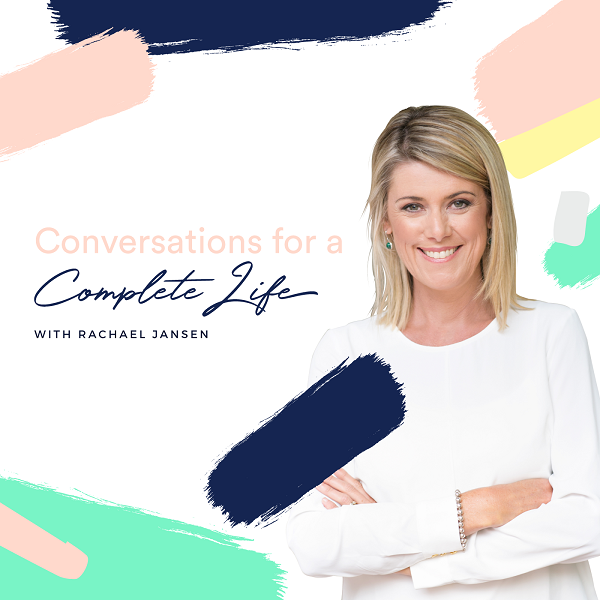Share the love, spread the word
with Rachael Jansen
We’ve heard it time and time again, the debate about whether women can have it all or not.
There is so much wrong with this debate, not the least that it should be needed in the first place, but even the central theme or question is wrong.
Asking if women can have it all sounds like we’re debating if she has permission to have it all. While the debate rages, she sits in limbo, waiting for the answer – can I or not?
The question that we should actually be asking and solving is this: what needs to change so women can have it all without the overwhelm or sacrifice?
At the moment, the idea of ‘having it all’ translates into daily life as doing it all.
A woman who has it all is invariably spending her days doing it all: working, mothering, caring, cleaning, cooking, shopping, washing, studying, and all the things in between.
That two dimensional idea of having it all is essentially defined by the ideas of having a family, including loving partner, and career success which includes financial gain.
It’s borne from blending the two stereotypical gender roles: the woman who looks after family, and the man’s world of going out to work for financial gain.
It’s this very linear idea of having it all that is typically talked about but having it all isn’t a two-dimensional existence in which you fill your schedule with work and family and all the associated obligations and chores that come with those.
That definition leaves out most of the important elements of life – the bits that give us balance, health, happiness and a sense of peace.
So it’s not ‘all’ at all.
Having it all as I see it, is having a complete life – or feeling whole.
A complete life versus having it all
For now, let’s set aside the overarching problem that is a patriarchal society that hasn’t yet adjusted it’s working hours to make room and flexibility for parents of both genders.
That’s a greater systemic shift that needs to happen. We’re working on it.
For those of us in the juggle at the moment, feeling that having it all is actually a bit of a crock isn’t unusual.
It’s a situation in which women feel they are constantly failing: not reaching their potential at work and not fulfilling their obligations at home, and to rub salt into the weary wound, she’s feeling unwell, unhealthy and often, unhappy.
She’s left feeling that she has to compromise – either her health and wellbeing by pushing through, or her fulfillment by taking on diminished or demoted work conditions.
This is why women feel they can’t have it all – because they’re doing it all and yet not living completely.
Living completely means feeling whole.
It doesn’t mean you won’t sometimes feel tired, stressed or overwhelmed. It does mean though that those feelings won’t be the default way of life, and you will instead be living in a way in which you can manage those times with greater grace and understanding.
You don’t have it all if you’re not paying attention to your health, doing things you love, connecting with your community or doing work you love because essential elements of your life are missing.
The 10 elements of a complete life
When it comes to having it all, I prefer to think of the whole picture – living completely.
That means feeling fulfilled, loved and healthy. It means living in a way in which we spend time doing things that nurture our body, mind and spirit.
I distilled this down to 10 elements of a complete life:
Family – this may or may not include children. It means a quality connection to a family unit of some description, however that looks for you. It could well mean furbabies to you.
Love – a connection to a partner, regardless of time frame or marital status. It may not be a lifetime love. It may also mean you’re completely happy living in sovereignty.
Health – our physical and mental health cannot be ignored if we want to feel happy.
Movement – I use this word as opposed to exercise as movement had a more gentle and nurturing meaning, whereas the word exercise can sound like a chore or punishment.
Fulfillment – we all need to have some sense of purpose or individual fulfillment outside of our relationships. It may be a job or career, a business or some other way you contribute.
Connection – having meaningful connections to friends or a sense of belonging to a community, and making time for them, is crucial for our happiness.
Creativity – doing something creative for the love of it brings joy to our lives.
White space – this is literally white space in your days. Where you have no commitments, just open time and space to be.
Soul space – a form of spirituality or time in which you connect to something bigger than yourself. It can be traditional religion and faith or meditation, yoga, or being in nature.
Self-growth – humans are designed to keep learning and growing. Making time for your own personal growth can be as simple as reading or it might be investing in new courses.
Living completely doesn’t mean doing all these 10 things every day. It means making sure you are incorporating them into your life regularly, consistently and as you need them.
We balance all of these elements to make sure we feel whole and no longer feel like something is missing.
At different times, you might be overloaded in some elements, and depleted in others. Knowing what the elements are means you can assess where you need to adjust – what’s missing, what do you need?
And you’d be surprised at just how little effort you need to make to fill a gap.
A walk around the block in your neighbourhood can address movement, health, connection and soul space.
A 10 minute meditation can top up your elements of health, soul space, self growth and white space.
Reading a non-fiction book may boost your health, soul space, self-growth.
We can’t continue to look at life boiling down to only work and family because it leaves out of the picture you, as an individual. It over-simplifies our needs as humans, and minimises life and all it could be.
Listen in:
Start living your complete life – download the Complete Life workbook to get started.






